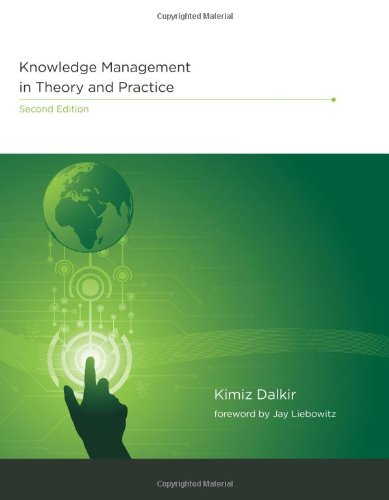

Most ebook files are in PDF format, so you can easily read them using various software such as Foxit Reader or directly on the Google Chrome browser.
Some ebook files are released by publishers in other formats such as .awz, .mobi, .epub, .fb2, etc. You may need to install specific software to read these formats on mobile/PC, such as Calibre.
Please read the tutorial at this link: https://ebookbell.com/faq
We offer FREE conversion to the popular formats you request; however, this may take some time. Therefore, right after payment, please email us, and we will try to provide the service as quickly as possible.
For some exceptional file formats or broken links (if any), please refrain from opening any disputes. Instead, email us first, and we will try to assist within a maximum of 6 hours.
EbookBell Team

4.8
94 reviewsThe ability to manage knowledge has become increasingly important in today's knowledge economy. Knowledge is considered a valuable commodity, embedded in products and in the tacit knowledge of highly mobile individual employees. Knowledge management (KM) represents a deliberate and systematic approach to cultivating and sharing an organization's knowledge base. It is a highly multidisciplinary field that encompasses both information technology and intellectual capital. This textbook and professional reference offers a comprehensive overview of the field of KM, providing both a substantive theoretical grounding and a pragmatic approach to applying key concepts. Drawing on ideas, tools, and techniques from such disciplines as sociology, cognitive science, organizational behavior, and information science, the text describes KM theory and practice at the individual, community, and organizational levels. It offers illuminating case studies and vignettes from companies including IBM, Xerox, British Telecommunications, JP Morgan Chase, and Nokia. This second edition has been updated and revised throughout. New material has been added on the information and library science perspectives, taxonomies and knowledge classification, the media richness of the knowledge-sharing channel, e-learning, social networking in KM contexts, strategy tools, results-based outcome assessments, knowledge continuity and organizational learning models, KM job descriptions, copyleft and Creative Commons, and other topics. New case studies and vignettes have been added; and the references and glossary have been updated and expanded.